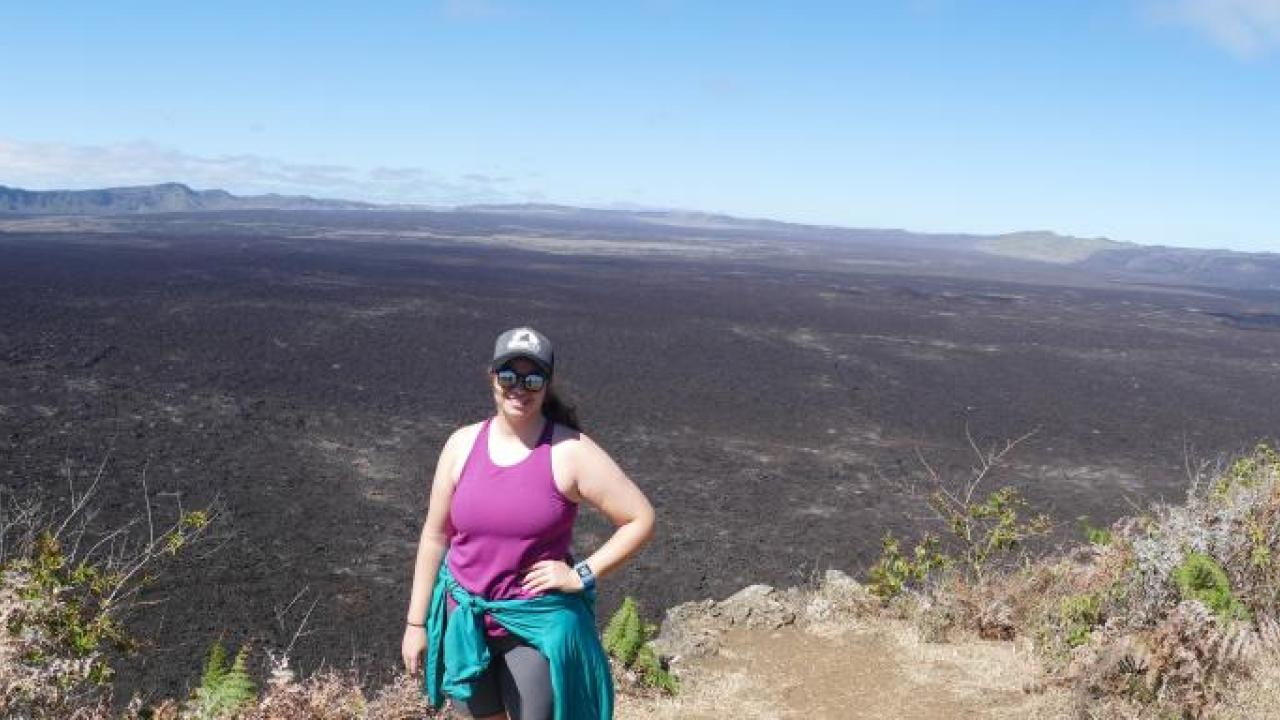
Meet Stela Petkova, Neuroscience Graduate Student and Grad Slam Finalist
About Grad Slam
UC Grad Slam is an annual contest in which master’s and Ph.D. students across UC campuses – in disciplines ranging from hard sciences to humanities – compete to sum up their research for a general audience. Students should present the significance and fundamental points of their work at UC Davis in a clear, direct, and interesting manner. Below you'll learn more about Grad Slam Finalist Stela Petkova, a neuroscience graduate student.
Name
Stela Petkova
Program and Degree
Neuroscience, Ph.D. program, 3rd year
Research Interests
Development and motor abilities in genetic mouse models of rare neurodevelopmental disorders related to autism
Previous Degree(s) and College(s)
Bachelor of Arts in Neuroscience, Wellesley College
Grad Slam Presentation Title
Walking with Autism
Describe your presentation style in three words.
Engaging, enthusiastic, relatable.
You're a Grad Slam finalist for the second year in a row. What motivated you to return to the competition?
I'm still incredibly passionate about public speaking and science communication and I wanted to share an updated story about my research.
How has your presentation and your presentation style changed over the past year?
This year, I chose a singular focused, data driven story instead of talking about a concept within my research. I added relatable components and made sure to use punchy visuals to really demonstrate and illustrate my points more than I did last year. But I myself haven't changed; I'm just as energetic and excited to share my story with the audience as ever!
What initially attracted you to your field of study?
I grew up bilingual and was always fascinated how we, as humans, learn these complex and meaningful vocalizations. In college, I began research in animal models of complex vocal learning and I also learned about autism, a strange and curious disorder where people had dysfunction of language and learning, and lacked meaningful social communication. I went to graduate school to do that: find out why and how this dysfunction occurs. But what I learned opened my eyes. More than social communication, there are other key symptoms that are understated and have more impact on patients and their families: sleep disturbances, intellectual disability and motor ability. Being able to shed light on these symptoms and being part of research into the causes and hopefully therapies is incredibly meaningful and motivational for me.
What do you like to do in your free time?
I love being active! I'm currently training for a half marathon this April so I spent a lot of time running and thinking about my talk. During the summer, I love swimming and biking which complements the running and I'll be doing a triathlon this October. I'm always game to try a yoga class, spinning, any thing to keep me moving. I also love to travel and always sneak in some adventures between experiments. Last year, I went to the Galapagos and Amazon forest and this year I'll be headed to the Great Barrier Reef!
If you could invite one person (from any point in history) to sit in the audience and view your presentation at the March 13 Final Round, who would it be and why?
Hans Asperger. He was the first person to describe autism and unlike most other medical professionals at the time, he did not lock those kids away in asylums or treat them poorly. He really was sympathetic and interacted with them, learned about them, cared for them and therefore autism as a clinical disorder was recognized. I think he would appreciate the care and passion in the field of autism research today and that we're not just focused on the surface level deficits but the deficits that, if amended, could make a huge difference in a child's life.
Where do you see yourself in 10 years?
What a good question! I don't really know but above all, I absolutely know I want to contribute to the autism research field. I want to remain involved in helping kids with autism and their families.
Media Resources
- This story was originally posted by UC Davis Graduate Studies
